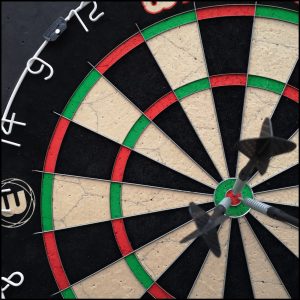 Many students believe that the only way to improve their grades is to study harder and longer. They spend hours poring over textbooks, notes, and assignments, hoping to absorb as much information as possible. However, this approach is not only exhausting, but also ineffective. Research shows that studying more does not necessarily lead to better academic performance. In fact, if additional studying causes increases in stress, it may even have negative consequences, such as reduced motivation and impaired memory.
Many students believe that the only way to improve their grades is to study harder and longer. They spend hours poring over textbooks, notes, and assignments, hoping to absorb as much information as possible. However, this approach is not only exhausting, but also ineffective. Research shows that studying more does not necessarily lead to better academic performance. In fact, if additional studying causes increases in stress, it may even have negative consequences, such as reduced motivation and impaired memory.
So how can you achieve better grades without studying more? The answer lies in studying smarter, not harder. This means using strategies that help you learn more efficiently and effectively, without wasting time and energy. Here, we share some tips on how to study smarter and boost your academic performance without studying longer. These tips are based on scientific evidence and proven techniques that can help you optimize your learning process.
Tip 1: Use Your Strengths
 One of the first steps to studying smarter is to identify and use your strengths. Your strengths are the qualities that make you unique and help you excel in certain areas. For example, you may have a strength in creativity, curiosity, humor, or perseverance. Knowing your strengths can help you leverage them to enhance your learning and performance.
One of the first steps to studying smarter is to identify and use your strengths. Your strengths are the qualities that make you unique and help you excel in certain areas. For example, you may have a strength in creativity, curiosity, humor, or perseverance. Knowing your strengths can help you leverage them to enhance your learning and performance.
To discover your strengths, you can take a free online test from the VIA Institute on Character, which ranks your 24 character strengths from strongest to weakest. Once you know your strengths, you can use them to improve your academic skills. For instance, if you have a strength in creativity, you can use it to generate novel ideas for your assignments or projects. If you have a strength in curiosity, you can use it to explore new topics or perspectives that interest you.
However, be careful not to overuse your strengths, as this may backfire. For example, if you have a strength in humor, you may be tempted to make jokes or comments that are inappropriate or distracting in class. Therefore, you need to balance your strengths with other skills and values that are relevant for your academic success.
Tip 2: Set Specific Goals
 Another way to study smarter is to set specific goals for yourself. Goals are statements of what you want to achieve or accomplish in a certain time frame. Setting goals can help you focus your attention, motivate your efforts, and monitor your progress. However, not all goals are created equal. Some goals are more effective than others in enhancing your academic performance.
Another way to study smarter is to set specific goals for yourself. Goals are statements of what you want to achieve or accomplish in a certain time frame. Setting goals can help you focus your attention, motivate your efforts, and monitor your progress. However, not all goals are created equal. Some goals are more effective than others in enhancing your academic performance.
One approach to creating effective goals is to make them SMART: specific, measurable, achievable, relevant, and time-bound. Specific goals are clear and concrete, such as “I want to get an A on my next math test”. Measurable goals are quantifiable and verifiable, such as “I want to score at least 90% on my next math test”. Achievable goals are realistic and attainable, such as “I want to improve my math grade by 10% this semester”. Relevant goals are aligned with your values and interests, such as “I want to learn math because it is useful for my future career”. Time-bound goals have a deadline or a time frame, such as “I want to achieve my math goal by the end of this semester”.
To set SMART goals for yourself, you need to analyze your current situation and identify the areas that need improvement. Then, you need to break down your long-term goals into short-term goals that are manageable and actionable. For example, if your long-term goal is to get an A on your next math test, your short-term goals could be:
- Review the concepts and formulas covered in class
- Solve at least 10 practice problems every day
- Ask for feedback from my teacher or tutor
- Take a mock test before the actual test
By setting SMART goals for yourself, you can create a plan of action that will guide your study process and help you achieve better results.
Tip 3: Prioritize Happiness
 A third tip for studying smarter is to prioritize happiness. Happiness is a positive emotional state that involves feeling good about yourself and your life. Happiness can have both immediate and long-term benefits on your academic performance. Almost immediately after experiencing happiness, you are better able to concentrate on classroom tasks, which can enhance learning. In the long run, happiness can also boost your motivation, memory, creativity, and resilience, which are all essential for academic success.
A third tip for studying smarter is to prioritize happiness. Happiness is a positive emotional state that involves feeling good about yourself and your life. Happiness can have both immediate and long-term benefits on your academic performance. Almost immediately after experiencing happiness, you are better able to concentrate on classroom tasks, which can enhance learning. In the long run, happiness can also boost your motivation, memory, creativity, and resilience, which are all essential for academic success.
So how can you increase your happiness while studying? One way is to engage in activities that make you happy before or after studying. For example, you can listen to music, watch a funny video, play a game, or chat with a friend. These activities can help you relax and reduce stress, which can improve your mood and performance.
Another way is to find meaning and purpose in your studies. Meaning is the sense that what you do matters and contributes to something bigger than yourself. Purpose is the intention to achieve a specific goal that is important to you. Finding meaning and purpose in your studies can help you enjoy the learning process and feel more satisfied with your outcomes. To find meaning and purpose in your studies, you can:
- Connect your studies to your personal values and interests
- Think about how your studies can benefit yourself and others
- Set challenging but attainable goals that inspire you
- Seek feedback and support from others who share your goals
By prioritizing happiness, you can not only improve your academic performance, but also your well-being and life satisfaction.
Tip 4: Use Active Learning Strategies
 A fourth tip for studying smarter is to use active learning strategies. Active learning strategies are techniques that involve actively engaging with the material, rather than passively reading or listening to it. Active learning strategies can help you deepen your understanding, retain more information, and apply your knowledge to new situations. Some examples of active learning strategies are:
A fourth tip for studying smarter is to use active learning strategies. Active learning strategies are techniques that involve actively engaging with the material, rather than passively reading or listening to it. Active learning strategies can help you deepen your understanding, retain more information, and apply your knowledge to new situations. Some examples of active learning strategies are:
- Summarizing: This involves putting the main ideas of a text or lecture into your own words. Summarizing can help you clarify and organize your thoughts, as well as identify any gaps or misunderstandings in your comprehension.
- Questioning: This involves generating and answering questions about the material. Questioning can help you test your knowledge, stimulate your curiosity, and reveal any misconceptions or confusions.
- Elaborating: This involves adding details, examples, or explanations to the material. Elaborating can help you connect the material to your prior knowledge, make it more meaningful and memorable, and enhance your reasoning skills.
- Self-explaining: This involves explaining the material to yourself or someone else. Self-explaining can help you monitor your understanding, identify any errors or inconsistencies, and reinforce your learning.
- Self-testing: This involves quizzing yourself on the material using practice questions or flashcards. Self-testing can help you assess your mastery, identify your strengths and weaknesses, and improve your recall and performance.
To use active learning strategies effectively, you need to choose the ones that suit your learning style and goals. You also need to use them frequently and consistently throughout your study process, not just before exams. By using active learning strategies, you can make your study sessions more productive and enjoyable.
Tip 5: Seek Feedback
 A fifth tip for studying smarter is to seek feedback. Feedback is information that tells you how well you are doing and what you can do to improve. Feedback can come from various sources, such as teachers, tutors, peers, or yourself. Seeking feedback can help you enhance your learning and performance in several ways:
A fifth tip for studying smarter is to seek feedback. Feedback is information that tells you how well you are doing and what you can do to improve. Feedback can come from various sources, such as teachers, tutors, peers, or yourself. Seeking feedback can help you enhance your learning and performance in several ways:
- Feedback can help you identify your strengths and areas for improvement. This can help you focus on the most important aspects of your learning and avoid wasting time on irrelevant or redundant information.
- Feedback can help you correct any errors or misconceptions that may hinder your progress. This can help you avoid repeating the same mistakes and improve your accuracy and confidence.
- Feedback can help you track your progress and achievements. This can help you set realistic expectations, celebrate your successes, and adjust your goals if necessary.
- Feedback can help you motivate yourself and stay on track. This can help you overcome challenges, cope with setbacks, and persist until you reach your desired outcomes.
To seek feedback effectively, you need to ask for it regularly and constructively. You also need to be open-minded and receptive to the feedback you receive, without being defensive or discouraged. Moreover, you need to act on the feedback you receive, by implementing the suggestions or recommendations that are relevant and helpful for your learning.
Conclusion
Studying smarter is not about studying more, but about studying better. By following these tips, you can increase your academic performance without studying longer:
- Use your strengths
- Set specific goals
- Prioritize happiness
- Use active learning strategies
- Seek feedback
These tips are based on scientific evidence and proven techniques that can help you optimize your learning process. However, they are not meant to be exhaustive or prescriptive. You may find other tips or methods that work better for you, depending on your preferences and circumstances. The key is to experiment and find what works best for you.
Remember that studying smarter is not only beneficial for your grades, but also for your well-being and life satisfaction. By studying smarter, you can enjoy the learning process more and achieve better results with less stress and effort.
Next Steps
 Reading this article was the first step in leveling up your studying power… and right now is the time to put these tips into action. Want to psychologically solidify your commitment to change? Here are some next steps you can take:
Reading this article was the first step in leveling up your studying power… and right now is the time to put these tips into action. Want to psychologically solidify your commitment to change? Here are some next steps you can take:
- Follow us on social media (Facebook, X/Twitter, Instagram, TikTok, & Reddit) to join the conversation and share your thoughts and experiences with us and other readers.
- Leave a comment below and let us know what you think about this article. Do you agree or disagree with the study tips we discussed? Do you have any questions or suggestions for us?
- Share this blog post with your friends, family, classmates, or colleagues who might be interested in or benefit from it.
- Check out our other blog posts on Paladinsane’s World that cover various topics related to education and well-being such as study skills, time management, stress management, motivation, etc.
Thank you for reading Paladinsane’s World! We hope to see you again soon!

